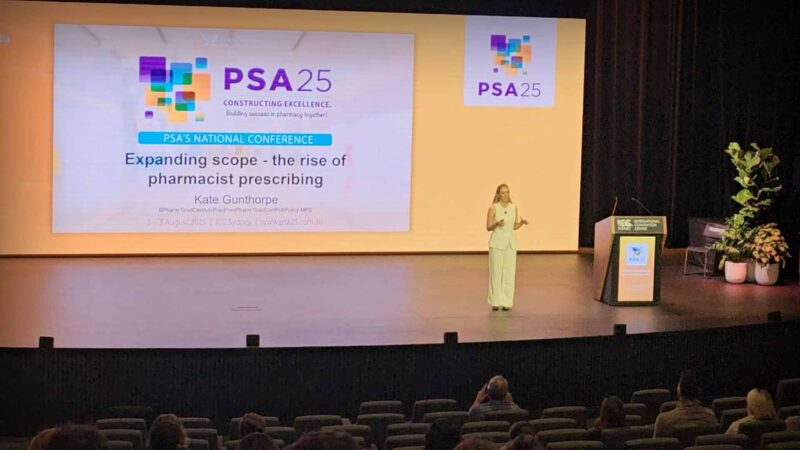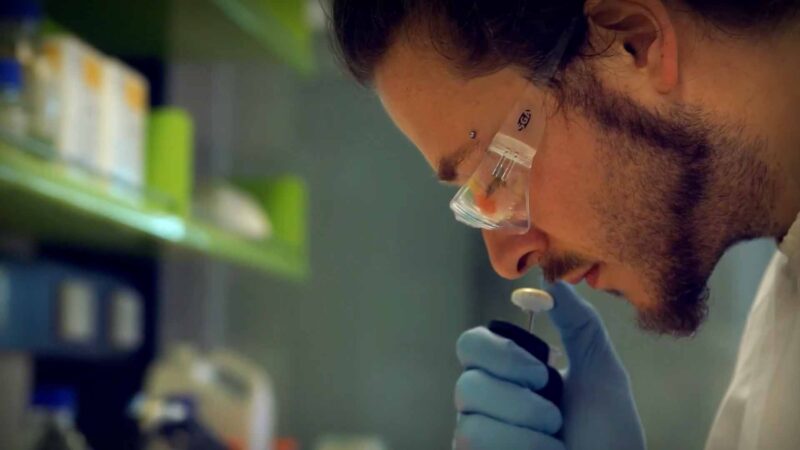CASE STUDY: METHODOLOGY IN BUILDING INFORMATION AND EDUCATION RESOURCES FOR A NATIONAL SCREENING PROGRAM Supporting participation paramount in the upcoming National Lung Cancer Screening Program
With
Dr Rachael Dodd
Senior Research Fellow,
The Daffodil Centre, a Cancer Council NSW & The University of Sydney Joint Venture
AUSTRALIAN HEALTH JOURNAL CASE STUDY
Filmed in Sydney | April 2025
At the recent Screening Conference 2025 in Sydney, hosted by Public Health Association, Dr Rachael Dodd, Senior Research Fellow at The Daffodil Centre, spoke about the information and educational resources created to increase awareness in the healthcare workforce and community on the upcoming Australia’s National Lung Cancer Screening Program commencing in July 2025.
A consortium including The Daffodil Centre, Lung Foundation Australia, Cancer Council Victoria and University of Melbourne were engaged by the Australian Government, through Cancer Australia to deliver a suite of information materials, workforce education resources, and a dissemination strategy for the Program, seen as paramount to support participation.
Dr Dodd talked to Australian Health Journal about the qualitative research process over the past 6 years, from a scoping review of existing lung cancer screening (LCS) information materials and messaging and an environmental scan of existing cancer screening program resources to inform initial development of the key messages, proposed information resources and the dissemination strategy. These were further developed through individual interviews and co-design workshops with the healthcare workforce and community members.
The scoping review identified 34 articles reporting strategies to increase awareness and knowledge of LCS. The environmental scan found 13 provider-focused resources and 18 consumer-focused resources across Australian screening programs. Most LCS-specific resources (18 sets) were from the United States, United Kingdom, Canada and Singapore.
Key ideas arising from the consultations (28 community; 35 health workforce) and co-design workshops (2 health workforce (n=41), 1 community (n=18)) were the need for: clear information about eligibility criteria, a pack-year smoking calculator, easy-to-read detail about the National Cancer Screening Register, examples of symptoms of lung cancer, clarity on referral pathways, a centralised website to host resources, videos of the screening process, guidance for ineligible participants, and managing conversations including smoking behaviours, and lung cancer stigma. Digital resources were generally preferred to paper resources.
Source: Adapted from Screening Conference 2025 Abstract Book
You Might also like
-
Pharmacist Prescribing Model gets further support from state health
A full scope pharmacist prescriber model allows pharmacists to independently prescribe medicines within their professional competence, without requiring prior doctor authorisation. It extends pharmacists’ role beyond dispensing to include assessment, diagnosis of minor and chronic conditions, initiation and modification of therapy, and ongoing patient monitoring. This model integrates pharmacists into primary care teams, aiming to improve timely access to treatment, reduce pressure on general practitioners, and enhance continuity of care. Pharmacists use their clinical knowledge, patient records, and collaborative pathways to ensure safe prescribing. The model emphasises training, regulation, and accountability to maintain high standards of patient safety.
-
Study reveals socioeconomic barriers to children’s healthcare access
Research published in the Australian Journal of General Practice (AJGP) has revealed mental health and developmental–behavioural issues such as ADHD are the most common paediatric referrals in metropolitan general practices.
But the research also revealed children at higher risk are less likely to get the care they may need.
-
SAHMRI Celebrates 10 Years of Research
SAHMRI represents an exciting and unique statewide concept, bringing together basic and translational research, South Australia’s three universities and the health system. SAHMRI works in collaboration with its partners to provide a clear focal point for health and medical research, including paving the way for new partnerships, innovative research projects and improved health outcomes.
Executive Director, Professor Maria Makrides spoke to Australian Health Journal about 3 achievements in the past 10 years that have had significant impact
International leadership breakthroughs in leukaemia research
Culturally appropriate Indigenous health research and clinical care
Omega 3 fatty acids as a preterm birth prevention



